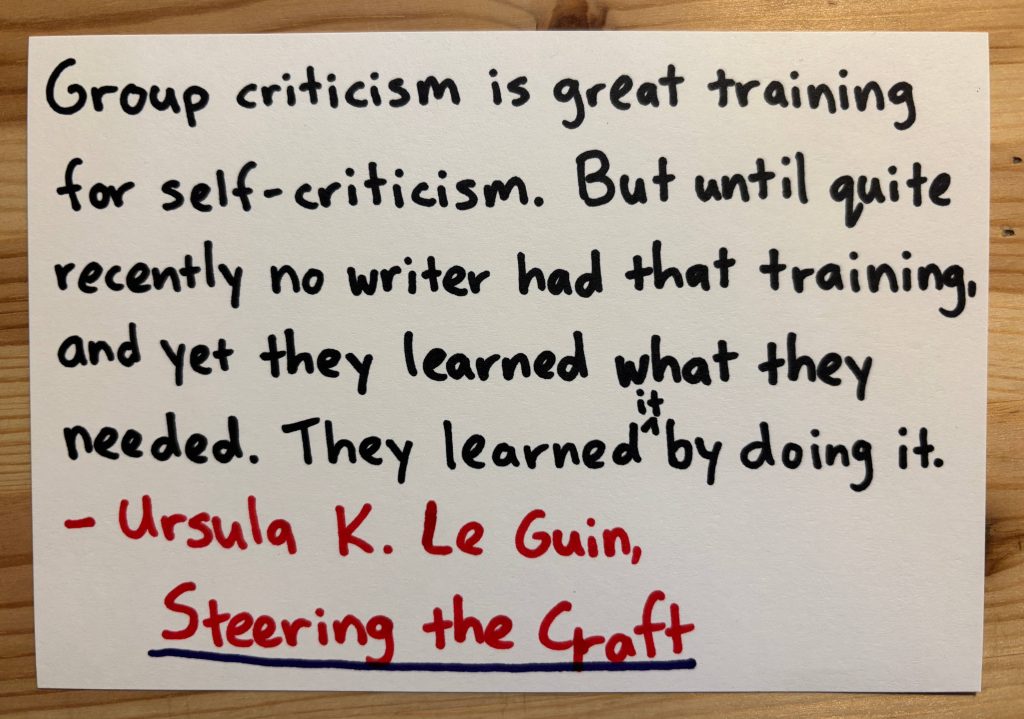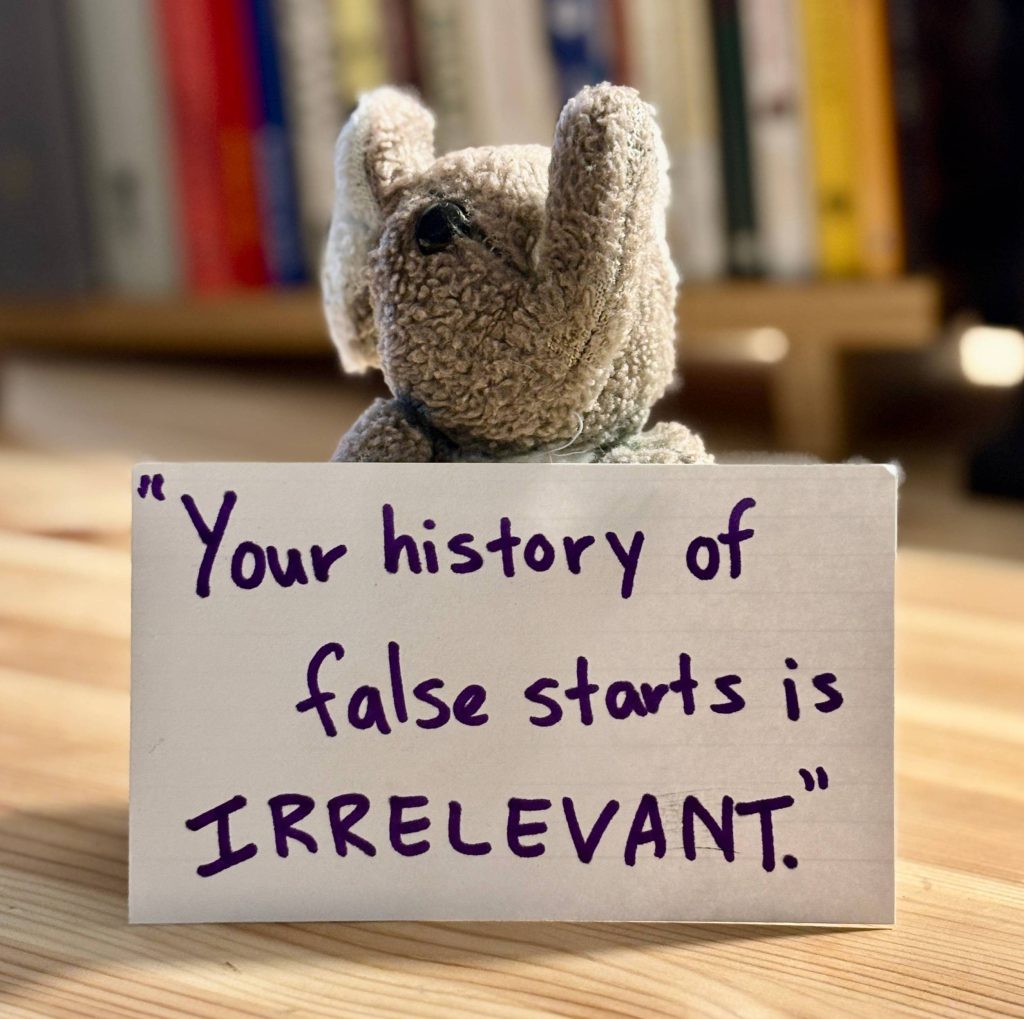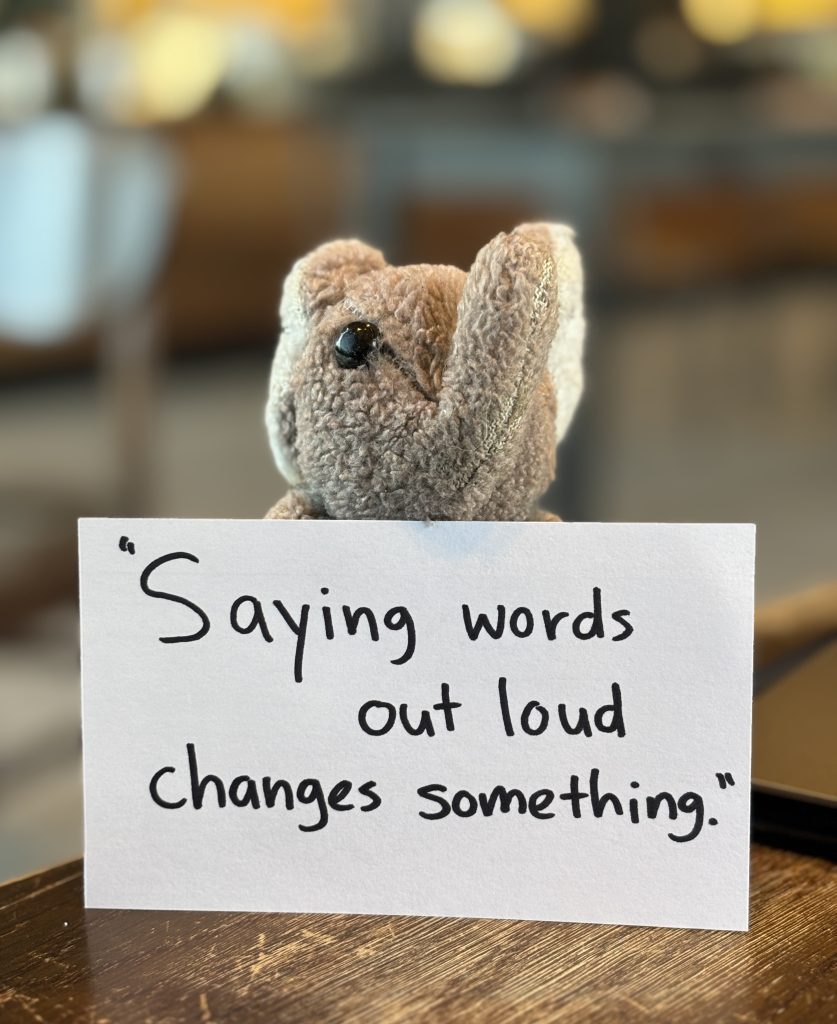
Last week, a reader posted a thoughtful question on my blog:
How do you know when a piece of copy is ready to send off? I think this is one of the hardest challenges as a writer. Interesting point about perfectionism and editing/writing. I am one of those, and obsessive. The thing is a piece can always be improved, I think. So how does one know?
Since I’m trying to be a hospitable blogger, I set time aside to write a thoughtful reply. However, when I sat down to share those thoughts, another question came out instead:
How does one know a piece is NOT ready?
I know it’s annoying to answer a question with another question, but I’m not trying to be cheeky. (Or not just.)
In my new workbook, I suggest that there’s a subtle difference between affirmation and validation. One is good. The other not so much. And unfortunately, many writers—myself included—are drawn to the wrong one.
When we ask our readers to affirm what we’ve written, we’re asking them, “Can you see what I see when you look at the world?” It’s like catching sight of something wonderful up in the skinny branches of a tree. “Look!” we say and point. Our readers squint upwards in response. If we’ve pointed well, they see it too.
Validation, on the other hand, asks another question: “What should I see when I look at the world?” We think we’ve seen something. But we’re not sure. So we ask others what they see and quickly parrot their words back at them. It doesn’t matter if we actually see what they’ve seen. Like little children, we’ll nod a little too eagerly, driven by our desire for acceptance.
But YOU are the writer. YOU get to decide what you’ve seen and what you want to say about it. You and ONLY you.
That might sound strange coming from an editor. Don’t people pay me to tell them what’s not working in their writing? Well, yes. And no.
A good editor doesn’t recast an author’s vision or take over the author’s voice. Their job, rather, is to help the author discover the height of their power. They strive to look at things from the author’s perspective so they can help them hone their ability to point out what they’ve seen. Even if (as sometimes happens) they see something entirely different.
And here’s the best thing about all this: as Ursula K. Le Guin says in the quote above, you don’t need anyone’s permission—not even an editor’s—to own your voice.
Sure, feedback can be encouraging and give you a little boost of confidence. But if you really want to become a confident writer, all you have to do is write, write, and write. Do that, day in and day out, and you’ll eventually be your own best editor.

